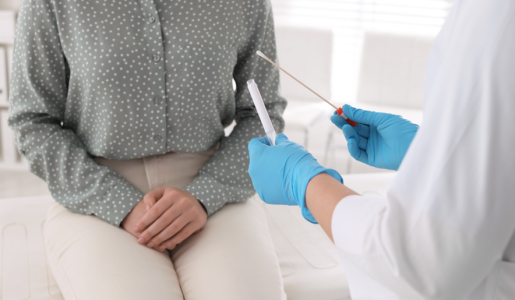Experts warn: Spike in diseases highlights urgent need for increased testing
By
- Replies 33
As we navigate the golden years, health concerns often shift towards chronic conditions and maintaining general well-being.
However, a pressing health issue has been quietly escalating, and it's not just confined to the younger demographic.
The Royal College of Pathologists of Australasia (RCPA) raised the alarm on a nearly 20 per cent increase in gonorrhoea cases from 2022 and 2023, and the rates of syphilis are also climbing sharply.
The trend is particularly alarming as it includes a rise in congenital syphilis, where the infection is passed on to unborn children despite testing levels not increasing.
Associate Professor Caitlin Keighley, a Medical Director, Microbiologist, and Infectious Diseases Physician at Southern IML Pathology, has emphasised the urgency of this public health issue.
'The rise in STIs such as gonorrhoea, syphilis, and HIV is a pressing public health issue that requires immediate attention in Australia,' Keighley stated.
‘Despite a concerning rise in cases, we are not seeing a corresponding increase in testing rates.’
‘This includes older adults who may not be forthcoming about changes in their sexual practices.’
‘Low testing levels mean that infections can go undiagnosed and untreated, leading to severe health complications and further transmission.’ she added.
‘This leaves many individuals unknowingly at risk and is particularly concerning for pregnant women, where untreated STIs can result in congenital infections with devastating outcomes.’
The situation is even more critical for Aboriginal and Torres Strait Islander peoples, who face 'substantially higher' rates of STIs compared to non-Indigenous Australians, with the prevalence of gonorrhoea and syphilis being over five times higher.
‘Regular STI testing is a simple yet vital step that individuals can take to protect their health and the health of their partners,’
In similar news, the incidence of syphilis in Australia has tripled in the past decade, with a significant rise in cases among women.
The Kirby Institute's report suggested that reduced testing due to COVID-19 contributes to increased STI rates. Read more about it here.

Have you had experiences with STI testing or conversations with your healthcare provider that you'd be willing to share? Share your insights in the comments below.
However, a pressing health issue has been quietly escalating, and it's not just confined to the younger demographic.
The Royal College of Pathologists of Australasia (RCPA) raised the alarm on a nearly 20 per cent increase in gonorrhoea cases from 2022 and 2023, and the rates of syphilis are also climbing sharply.
The trend is particularly alarming as it includes a rise in congenital syphilis, where the infection is passed on to unborn children despite testing levels not increasing.
Associate Professor Caitlin Keighley, a Medical Director, Microbiologist, and Infectious Diseases Physician at Southern IML Pathology, has emphasised the urgency of this public health issue.
'The rise in STIs such as gonorrhoea, syphilis, and HIV is a pressing public health issue that requires immediate attention in Australia,' Keighley stated.
‘Despite a concerning rise in cases, we are not seeing a corresponding increase in testing rates.’
‘This includes older adults who may not be forthcoming about changes in their sexual practices.’
‘Low testing levels mean that infections can go undiagnosed and untreated, leading to severe health complications and further transmission.’ she added.
‘This leaves many individuals unknowingly at risk and is particularly concerning for pregnant women, where untreated STIs can result in congenital infections with devastating outcomes.’
The situation is even more critical for Aboriginal and Torres Strait Islander peoples, who face 'substantially higher' rates of STIs compared to non-Indigenous Australians, with the prevalence of gonorrhoea and syphilis being over five times higher.
‘Regular STI testing is a simple yet vital step that individuals can take to protect their health and the health of their partners,’
In similar news, the incidence of syphilis in Australia has tripled in the past decade, with a significant rise in cases among women.
The Kirby Institute's report suggested that reduced testing due to COVID-19 contributes to increased STI rates. Read more about it here.
Key Takeaways
- There has been a significant surge in STI cases in Australia, including nearly a 20 per cent increase in gonorrhoea and a spike in syphilis.
- The rise in STIs has occurred despite testing levels not increasing, risking further undiagnosed and untreated infections.
- Regular testing has been emphasised as crucial for public health, particularly in light of the risk to pregnant women and their unborn children.
- Aboriginal and Torres Strait Islander peoples experience substantially higher rates of STIs than non-Indigenous Australians.








